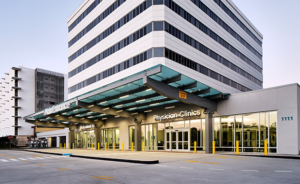
Washington Department of Social and Health Services’ (DSHS) Civil Center for Behavioral Health at Maple Lane was opened in February 2023 as Washington state’s first decentralized mental health care program, supporting an initiative to transform behavioral health services as well as offering inpatient psychiatric care services.
This 15,500-square-foot residential treatment facility can serve 16 patients at once and offers treatment in an intimate community setting close to patients’ support systems.

Reimagined environments feature vibrant hues like orange and teal, soft textures such as carpeting and natural materials like wood.
Giving Psychoiatric Patients Choice Additionally, patients receive appropriate choices and control based on where they are in their treatment journey. This manifests itself in various options for where to spend their time; either connecting with larger patient groups or engaging in more intimate interactions depending on individual needs.
Safety at our facility is prioritized through visibility, lack of hidden areas, connection to staff spaces and use of ligature-resistant finishes.
A healing, homelike environment focuses on connecting to daylight and nature through various areas of its surroundings – this includes creating a “nature nook” bay window for respite, ample windows with views and an outdoor courtyard.
Design for Comfort and Safety
Interior design was inspired by the quilt motif, using patterns and textures that recall items often associated with home. Quilt-like patterns are implemented on wall treatments and flooring throughout the facility to foster feelings of coziness and welcome.
Special care was taken in designing a care team station that strikes a balance between safety and connection. Situated centrally within the milieu, the work area is enclosed to protect staff safety while offering clear sight lines down both wings.
Offset windows create an approachable feel and promote easy communication between staff and patients. Colorful quilt-like patterns on glass add flair to staff work areas.
Biophilic Design for Behavioral Health
Biophilic design for behavioral health utilizes the modern Northwest aesthetic, featuring exposed wood beams inside and out, sloped roof forms, soaring canopy entryway, brick masonry anchoring the building, large windows to maximize sunlight, exposed wood beams inside and out, sloped roof forms, sloped roof forms, sloped roof forms, sloped roof forms with pitched edges, sloped roof forms with sloped corners, sloped roof forms with pitched corners, sloped roof forms that slope away from one another – creating an organic look within its surroundings.
Further biophilic design strategies include two secure outdoor spaces with soft-surface turf and the nature nook, along with concave rocks incorporated into landscaping that create soothing, natural water features for patients to view.
Vancouver, Washington will soon host the second location for behavioral health services when three 16-bed facilities open their doors as part of an innovative community campus that addresses community needs identified during predesign phase.
Sustainable solutions at both locations include daylighting strategies, indoor water reduction techniques, photovoltaic solar array systems and carports with electric vehicle charging stations – all designed to achieve LEED Silver accreditation and achieve zero net energy capability.




